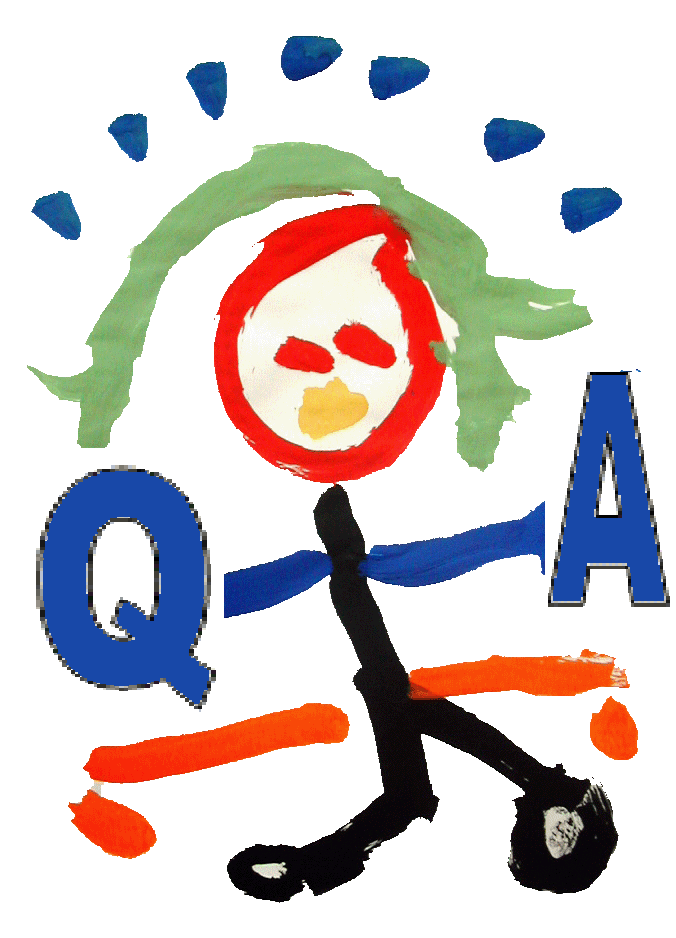

Q) My child's teeth are milk teeth, soon they will be replaced by new ones. Why should I bother to take care of them?
A) First, Your child's teeth are more important to him/her than your teeth are important to you! Unlike adults, children are actively growing. Proper food digestion is very essential during growth and development where your child's teeth play the primary role in that process.
Secondly, the time of eruption of permanent teeth nearly has no relation with the time of loosing the milk ones. For example if your child lost his/her decayed first primary molar at the age of 4 years, he/she will be deprived of that tooth for nearly five years because the date of eruption of its successor is at the age of 9 -10. So, milk teeth are not replaced by permanent ones "soon enough"
Third, Primary teeth have another important function, that is serving as space maintainers for the proper alignment of their permanent successors. If your child looses some of his/her primary teeth pre-maturely, "that is before their natural shedding time", he/she most probably will need costly orthodontic treatment in the future. As you can see, we pediatric dentists are not only concerned with today's dental problems, but also we have to look after tomorrow's consequences and how our patient is going to look during adulthood.
Fourth, your
child learns how to speak using his/her milk teeth. If he/she looses them
prematurely,
he/she might develop speech defects that might affect his/her developing
personality.
Fifth, Your
child is not only growing physically, but also mentally. No one can tell how bad
looking front teeth might affect the developing psychology of your child. This
is simply because
most children avoid talking about embarrassing situations. A child who has bad
looking smile
usually will not tell you that his classmates are making jokes about him, but he
may tell you " I
don't like going to school!" without obvious reasons.
Sixth, If
your mind is set to prioritize permanent teeth for dental care, please note that
being a child
does not mean that your child's teeth are all milk teeth. Around the age of six,
your child will show
his/her 1st.permanent molar tooth, also the lower central incisors start to show
looseness prior to
shedding to be replaced by their permanent successors.
So, please do not consider your child's teeth as "temporary non-important teeth".
Q) When should I start to take care of my child's teeth?
A) As early as you are already pregnant, you have to take good care of yourself and consider good quality food that is rich in calcium, phosphorus, anti oxidants and vitamins. Don't take vitamin supplements without consulting your doctor. Click here to go to the Nutrition Page.
Then, your child became a separate member of your family, please do not feed him/her during sleep. whether your child is breast fed or bottle fed, the milk should not be allowed to stay on his/her teeth during night. Sleep-time feeding leads to a very serious form of tooth decay. Click here to go to the Nursing Caries Page (If you are offended by pictures of destroyed teeth, Don't go).
Around the age of 6 months, most babies start to show erupting two lower front teeth. Now your baby has teeth, but he/she can not clean them, yet he/she has the right to have them cleaned! Mutant streptococci, the organism mostly blamed for tooth decay starts to colonize at that very early time. you can wrap a piece of sterile gauze around your thumb and wipe the teeth after each meal, also you can let your baby drink water after meals. The water flow helps to clean the enamel surface, also, water contains Fluoride that helps prevent tooth decay. Click here to go to the Fluoride Page.
As time goes by, your baby shows more teeth eruptions, you can take him/her to the dentist for check up. Your dentist will develop a routine preventive program for your child and will check that everything is OK, may be at that very early stage your child will start to realize that dentists are not bad people in white coats giving injections to good people.
Q) My baby is teething and she started to have fever, why is that and what should I do?
No reason to worry, slight fever is expected during teething. Teething is a natural process that involves break down of the epithelial cells of the gum to open the way for the growing tooth. The cellular breakdown releases some Histamine that might be responsible for slight fever, also some opportunistic bacteria from your baby's mouth might jump to her blood stream through the open gums that might contribute to the rise in your baby's temperature. An over the counter Paracetamol would be enough to deal with the fever, but you have to keep good oral hygiene to minimize the discomfort associated with teething. Also the use of teething aids is known to provide some relief.
I could not repair the 1st. 1ry molar tooth. I had to
remove it and construct a space maintainer to keep
the space for the developing 1st. permanent premolar.
